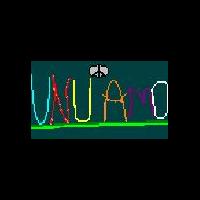Mesaĝoj: 16
Lingvo: English
BradP (Montri la profilon) 2009-septembro-28 19:37:55
What is the total number of root words? I am reading Gerda Malperis right now so I should have a good handle on the first 900-1000 most common ones when done, but how do I continue learning the less common vocabulary until the point of fluency?
I could look up words as I go but I really hate doing that. I would so much rather just sit and cram word lists, then read once I have them memorized. I don't like the stop-go action. Thanks.
Miland (Montri la profilon) 2009-septembro-28 19:57:47
In parallel, study the classified lists on this website. That should give you a vocabulary of 1000-1500 words.
The next step will be a magazine for beginners like Juna Amiko, and you will find a selection of articles as well as the word list of 1500 items that they assume, on this website. There are mini-vortaroj after many articles with explanations of the words in terms of the "basic" vocabulary, and I would recommend studying these as an aid to learning to think in Esperanto.
That should be quite enough for now!
BradP (Montri la profilon) 2009-septembro-28 20:41:09
Oŝo-Jabe (Montri la profilon) 2009-septembro-28 21:48:42
I also don't like stop-and-go-action. I don't stop reading to look up a word I don't know. Instead I keep a notepad handy, and write words while I read. Afterwords, I look up all the words I wrote down, and (if I didn't understand the text sufficiently) read it a second time.
llama - lamo
bowl - bovlo
skin - haŭto
brass - latuno
Zafur (Montri la profilon) 2009-septembro-28 22:09:39
I'd rather learn as I go than get predetermined lists since it feels like the words/roots are more important, as they're actually in immediate use. Of course, there is the exception of the lists of most commonly used roots.
If a larger amount of words are unknown to me, I'd rather just study some more (hopefully in a way more fun than classic drills) then attempt it later when I feel I've progressed enough.
erinja (Montri la profilon) 2009-oktobro-01 23:36:56
But another suggestion - you will seldom talk about certain things. If you are not interested in sailing or boating, then you will probably not need to know terms most commonly used in these fields. If you are into computers, then you will want to know those terms, to be able to talk about it in Esperanto. I know that you would prefer to memorize a ready-made list, but I really encourage you to make your own lists to learn the words for things that you will talk about. There isn't much use in learning a lot of cooking terms if you hate to cook and you don't want to talk about it; just a couple of very basic words would likely suffice for you. By talking with other Esperanto speakers, writing a lot (and looking up the words you want to write about) you can start to develop your own personal vocabulary, that describes your life.
ceigered (Montri la profilon) 2009-oktobro-02 06:20:16
So just learn really generic everyday words and you can pretty much work around those kinds of obstacles, provided the conversation isn't going at a million kilometres per hour (normally though I assume speakers like to take it slow in casual conversation?)
Kattapa (Montri la profilon) 2009-oktobro-02 11:24:04
http://www.reta-vortaro.de/revo/inx/_fak.html
The main page is also very practical:
http://www.reta-vortaro.de
Greyshades (Montri la profilon) 2009-oktobro-03 00:12:39

gyrus (Montri la profilon) 2009-oktobro-03 21:12:19
erinja:BradP, may I recommend the lernu picture dictionary. You can learn words by category. (learning > words > picture dictionary).Smart.fm: http://smart.fm/home works amazingly well on this concept. It's basically a tool for testing you on vocabulary lists but it is very effective.
But another suggestion - you will seldom talk about certain things. If you are not interested in sailing or boating, then you will probably not need to know terms most commonly used in these fields. If you are into computers, then you will want to know those terms, to be able to talk about it in Esperanto. I know that you would prefer to memorize a ready-made list, but I really encourage you to make your own lists to learn the words for things that you will talk about. There isn't much use in learning a lot of cooking terms if you hate to cook and you don't want to talk about it; just a couple of very basic words would likely suffice for you. By talking with other Esperanto speakers, writing a lot (and looking up the words you want to write about) you can start to develop your own personal vocabulary, that describes your life.




